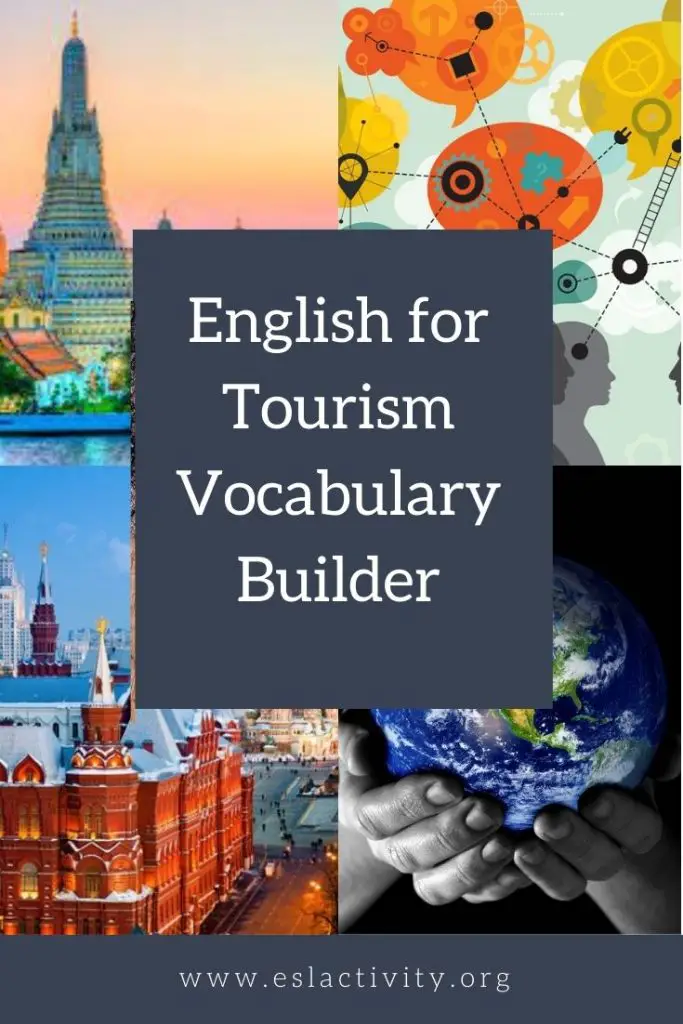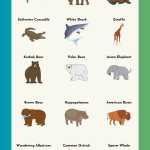There are various kinds of tourism vocabulary to learn, from working in a restaurant to a hotel or as a travel guide. If you want to brush up on your English for tourism, then you’re in the right place. Keep on reading to find out more about English for tourism industry workers. This English for Tourism Vocabulary Builder might be exactly what you need!
- Amazon Kindle Edition
- Bolen, Jackie (Author)
- English (Publication Language)
- 86 Pages - 03/11/2021 (Publication Date)
English For Tourism Workers
Learn the most useful English expressions, phrases, idioms and other vocabulary words to assist people in a hotel, airport, restaurant or on a tour. You can improve your confidence to be able to speak English to your guests. Impress your boss and maybe even get a better job because of your language skills!

Tourism English vocabulary
There are a number of reasons why you might consider picking up this book. Here are just a few of them:
- Get a better job in the tourism industry because you’re able to speak English well
- Learn some new English idioms and phrases designed to assist travellers.
- Have a variety of authentic dialogues at the airport, in restaurants or hotels at your fingertips
- Improve your American English which can allow you to interact with guests easily
- Speak English to people who need your help in a hotel or restaurant fluently and confidently
- Have some fun while learning travel English
- Amazon Kindle Edition
- Bolen, Jackie (Author)
- English (Publication Language)
- 86 Pages - 03/11/2021 (Publication Date)
How can I Learn Tourism English?
To learn tourism English, you can follow these steps:
Build a Strong Foundation in General English
Before focusing on tourism-specific vocabulary and phrases, it’s important to have a solid grasp of general English. Improve your reading, writing, listening, and speaking skills through textbooks, online courses, language exchange programs, or language learning apps.
Identify Tourism-related Vocabulary and Phrases
Make a list of common terms and phrases used in the tourism industry. This may include words related to accommodations, transportation, attractions, dining, greetings, directions, and customer service. Use English-English or bilingual dictionaries, travel guides, and tourism websites to compile a comprehensive list.
Take Tourism English Courses
Look for specialized courses or language schools that offer tourism English programs. These courses are designed to teach you the specific vocabulary, phrases, and communication skills needed for the tourism industry. They may cover topics such as hotel reservations, tour guiding, customer service, and cultural awareness.
Practice Speaking and Listening
Engage in conversational practice to improve your speaking and listening skills. Find language partners or join conversation groups where you can practice discussing tourism-related topics. This will help you become comfortable using the vocabulary and phrases you have learned.
Use Online Resources
Take advantage of online resources tailored for learning tourism English. Websites, podcasts, and YouTube channels focused on travel and tourism can provide valuable listening and reading material. Some websites also offer exercises and quizzes to test your understanding.
Read Travel and Tourism Materials
Read travel guides, brochures, websites, and blogs in English. This will expose you to authentic tourism-related content and help you understand how the language is used in real-life scenarios. Pay attention to the vocabulary, sentence structures, and idiomatic expressions used in these materials.
Watch Travel-related Videos and Movies
Watch videos, documentaries, or movies about travel and tourism. This will not only improve your listening skills but also expose you to different accents and cultural contexts. Pay attention to how native English speakers communicate in tourism-related situations.
Role-play and Simulations
Practice role-playing scenarios that commonly occur in the tourism industry. This could include activities like making hotel reservations, providing directions to tourists, or recommending local attractions. Act out these scenarios with a language partner or even by yourself to enhance your fluency and confidence.
Take Advantage of Real-life Opportunities
If you live in a tourist destination or have access to tourists, take advantage of these opportunities to practice your English. Offer assistance to tourists, guide them around your city, or work part-time in a tourism-related job. This will give you practical experience and help you apply your language skills in a real-world setting.
Keep Learning and Engaging
Learning a language is an ongoing process. Stay motivated and continue to practice regularly. Stay updated with current tourism trends, attend workshops, and participate in language exchange programs to maintain and enhance your skills.
Remember that consistency and dedication are key to mastering any language. By following these steps and immersing yourself in tourism-related English content, you can improve your language skills and become proficient in tourism English.
Pick up a Copy of this Tourism Vocabulary Book Today
Does it sound like the right option for you? You can easily find this book on Amazon in a variety of formats. Get the paperback or hardcover copy to read on breaks at work. Or, take the digital version with you on the subway or bus.
Whatever way you choose, get ready to learn the phrases, idioms, expressions and other vocabulary you need to know to work in the tourism industry. Check it out:
Last update on 2022-07-17 / Affiliate links / Images from Amazon Product Advertising API






